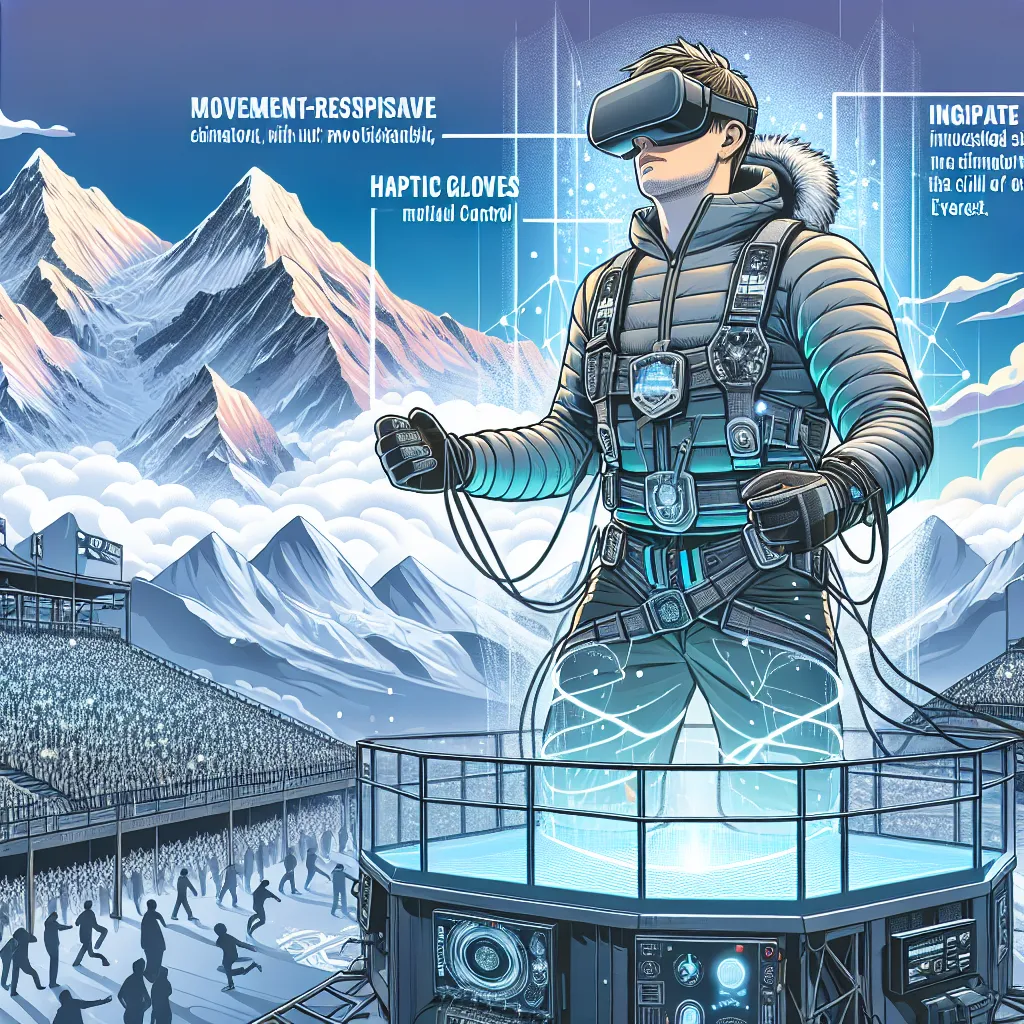Learning to use new tools or software is an essential skill in today’s digital age. This topic is increasingly relevant in IELTS Speaking tests, as it allows examiners to assess your ability to discuss technological advancements and personal learning experiences. In this guide, we’ll explore how to effectively answer questions about new tools or software you’ve learned to use, providing sample answers and tips to help you achieve a high band score.
Nội dung bài viết
- Part 1: Introduction and Interview
- Q1: Do you enjoy learning to use new technology?
- Q2: What was the last new piece of technology you learned to use?
- Part 2: Long Turn
- Cue Card
- Sample Answer (Band 8-9)
- Follow-up Questions
- Sample Answers
- Part 3: Two-way Discussion
- Q1: How do you think technology has changed the way people learn new skills?
- Q2: Do you think older generations find it more difficult to adapt to new technologies? Why or why not?
- Key Vocabulary and Phrases for High Scores
- Tips from an IELTS Speaking Examiner
 Person learning new software
Person learning new software
Part 1: Introduction and Interview
In Part 1, the examiner may ask you general questions about technology and learning new skills. Here are some possible questions and sample answers:
Q1: Do you enjoy learning to use new technology?
Band 6-7 Answer:
Yes, I do. I find it interesting to learn about new gadgets and software. It can be challenging sometimes, but it’s usually worth the effort.
Band 8-9 Answer:
Absolutely! I’m quite enthusiastic about keeping up with technological advancements. While there’s often a learning curve, I find the process of mastering new tools both intellectually stimulating and rewarding. It’s fascinating to see how technology continually evolves to make our lives more efficient.
Q2: What was the last new piece of technology you learned to use?
Band 6-7 Answer:
The last new technology I learned was a video editing software called DaVinci Resolve. I needed it for a project at work, and it took me a while to figure out all the features.
Band 8-9 Answer:
Recently, I immersed myself in learning DaVinci Resolve, a professional-grade video editing software. It was quite a steep learning curve, but I was determined to master its intricate features for a crucial work project. The software’s capabilities for color grading and audio post-production were particularly impressive.
Part 2: Long Turn
In this section, you’ll be given a cue card with a topic to speak about for 1-2 minutes. Here’s a sample cue card related to our theme:
Cue Card
Describe a new tool or software you learned to use recently.
You should say:
- What the tool or software is
- Why you decided to learn it
- How you learned to use it
- And explain how it has been useful to you
Sample Answer (Band 8-9)
I’d like to talk about my experience learning to use Tableau, a powerful data visualization software that I recently incorporated into my professional skill set.
Tableau is a cutting-edge tool designed for transforming complex data into intuitive visual representations. I decided to learn it because in my role as a marketing analyst, I frequently deal with large datasets, and I was looking for a more efficient and impactful way to present my findings to stakeholders.
The learning process was quite intensive. I started by enrolling in an online course on Udemy, which provided a comprehensive overview of Tableau’s features. Following that, I immersed myself in hands-on practice, working with sample datasets and creating various types of visualizations. I also joined a Tableau user community forum, where I could ask questions and learn from experienced users.
Tableau has been incredibly useful in my work. It has dramatically enhanced my ability to analyze trends and communicate insights effectively. For instance, I recently used it to create an interactive dashboard that displayed our company’s sales performance across different regions. This visualization made it much easier for our management team to identify areas of growth and make data-driven decisions.
Moreover, learning Tableau has opened up new career opportunities for me. It’s a highly sought-after skill in the data analysis field, and I’ve noticed that my proficiency with this tool has made me more valuable to my organization and marketable in the job market.
In conclusion, mastering Tableau has not only improved my professional capabilities but also reignited my passion for data analysis. It’s a testament to how learning new technology can significantly impact one’s career trajectory.
Follow-up Questions
- How long did it take you to become proficient with this software?
- Did you face any challenges while learning to use it?
Sample Answers
Q1: How long did it take you to become proficient with this software?
Band 6-7 Answer:
It took me about two months to become comfortable with Tableau. I practiced regularly after work and on weekends, which helped me learn faster.
Band 8-9 Answer:
Achieving proficiency with Tableau was a gradual process that spanned approximately three months of dedicated learning. I adopted a structured approach, allocating at least an hour each day to practice and exploration. This consistent engagement allowed me to progressively master the software’s features, from basic chart creation to advanced data manipulation techniques. By the end of this period, I felt confident in my ability to tackle complex data visualization tasks efficiently.
Q2: Did you face any challenges while learning to use it?
Band 6-7 Answer:
Yes, I did face some challenges. The software has many features, which was overwhelming at first. Also, connecting to different data sources was tricky sometimes.
Band 8-9 Answer:
Indeed, the learning journey was not without its obstacles. The sheer breadth of Tableau’s functionality was initially daunting, and I found myself grappling with the more advanced features like calculated fields and parameter actions. Additionally, integrating diverse data sources presented a significant hurdle, especially when dealing with unconventional file formats or real-time data streams. However, I viewed these challenges as opportunities for growth, and overcoming them ultimately deepened my understanding of both the software and data analysis principles in general.
Part 3: Two-way Discussion
In this part, the examiner will ask you more abstract questions related to the topic. Here are some potential questions and sample answers:
Q1: How do you think technology has changed the way people learn new skills?
Band 6-7 Answer:
Technology has made learning more accessible. People can now learn online through videos and courses. It’s also easier to find information quickly, which helps in learning new things.
Band 8-9 Answer:
Technology has revolutionized the learning landscape in myriad ways. Firstly, it has democratized access to knowledge, allowing individuals from diverse backgrounds to acquire new skills through online platforms and massive open online courses (MOOCs). This accessibility has broken down geographical and financial barriers that previously limited educational opportunities.
Moreover, technology has transformed the learning process itself. Interactive software, virtual reality, and artificial intelligence have made learning more engaging and personalized. Learners can now tailor their educational journey to their specific needs and learning styles, enhancing retention and application of knowledge.
However, this technological shift also presents challenges. The abundance of information available can be overwhelming, requiring learners to develop strong critical thinking and information literacy skills. Additionally, the ease of access to information might sometimes lead to a superficial understanding rather than deep learning.
In conclusion, while technology has undoubtedly enhanced learning opportunities, it also necessitates a more discerning approach to education, balancing the benefits of accessibility with the need for depth and practical application of knowledge.
Q2: Do you think older generations find it more difficult to adapt to new technologies? Why or why not?
Band 6-7 Answer:
Yes, I think older generations often find it harder to adapt to new technologies. They didn’t grow up with computers and smartphones, so these things can seem very complicated to them. Also, they might be more resistant to change.
Band 8-9 Answer:
The relationship between older generations and new technologies is nuanced and multifaceted. While it’s true that some older individuals may face challenges in adapting to rapidly evolving technologies, it would be overly simplistic to generalize this across an entire generation.
Several factors contribute to this perception. Firstly, older generations didn’t grow up in the digital era, which means they lack the innate familiarity with technology that younger people often possess. This can lead to a steeper learning curve and potentially more apprehension about embracing new tools.
Additionally, cognitive changes associated with aging might affect the speed at which new skills are acquired. However, it’s crucial to note that cognitive plasticity – the brain’s ability to adapt and learn – remains throughout life, albeit potentially at a slower pace.
Conversely, many older individuals demonstrate remarkable adaptability. Their life experience and problem-solving skills can actually be advantageous in learning new technologies. Moreover, the motivation to stay connected with family or remain competitive in the workforce often drives older generations to overcome initial hesitations.
It’s also worth considering that technological design plays a role. As user experience becomes a greater focus in tech development, we’re seeing more intuitive interfaces that are accessible to users of all ages.
In conclusion, while some older individuals may face initial hurdles in adapting to new technologies, it’s important to recognize the diversity within generations and avoid stereotyping. With proper support, motivation, and well-designed technology, people of all ages can successfully navigate the digital landscape.
Key Vocabulary and Phrases for High Scores
-
Cutting-edge (adjective) /ˈkʌtɪŋ edʒ/: The most advanced stage of development.
Example: The company uses cutting-edge technology in their manufacturing process. -
To immerse oneself (phrasal verb) /ɪˈmɜːs/: To involve oneself deeply in a particular activity.
Example: To master the new software quickly, I immersed myself in online tutorials and practice sessions. -
Intuitive (adjective) /ɪnˈtjuːɪtɪv/: Easy to use and understand.
Example: The new app has an intuitive interface, making it accessible even for non-tech-savvy users. -
To grapple with (phrasal verb) /ˈɡræpl/: To struggle or contend with.
Example: Many users grapple with the complex features of advanced photo editing software. -
Paradigm shift (noun) /ˈpærədaɪm ʃɪft/: A fundamental change in approach or underlying assumptions.
Example: The introduction of smartphones caused a paradigm shift in how we communicate and access information. -
To streamline (verb) /ˈstriːmlaɪn/: To make a system or organization more efficient and effective.
Example: The new project management tool helped streamline our workflow and increase productivity. -
User-friendly (adjective) /ˌjuːzə ˈfrendli/: Easy to use or understand.
Example: The developers focused on creating a user-friendly interface for their new app. -
To leverage (verb) /ˈliːvərɪdʒ/: To use something to maximum advantage.
Example: We can leverage this new software to improve our data analysis capabilities.
Tips from an IELTS Speaking Examiner
To achieve a high score in the IELTS Speaking test when discussing new tools or software:
-
Use specific examples: Instead of speaking generally, refer to specific tools or software you’ve learned. This demonstrates real experience and knowledge.
-
Employ a range of vocabulary: Use varied and sophisticated vocabulary related to technology and learning. This shows language proficiency and familiarity with the topic.
-
Discuss both benefits and challenges: Showing a balanced perspective by discussing both advantages and difficulties demonstrates critical thinking.
-
Structure your answer: Especially in Part 2, organize your response logically, covering all points on the cue card.
-
Extend your answers: In Part 3, don’t just give short responses. Elaborate on your points and provide examples to support your ideas.
-
Practice regularly: Familiarize yourself with technology-related topics and practice describing your experiences with new tools and software.
By following these tips and using the sample answers as inspiration, you’ll be well-prepared to discuss new tools and software in your IELTS Speaking test, potentially boosting your band score.
For more IELTS Speaking preparation tips, you might find it helpful to read about how to describe a time you had to be very organized or how to describe a time you worked in a team. These topics often involve discussing tools and organizational skills, which can be relevant when talking about learning new software.


